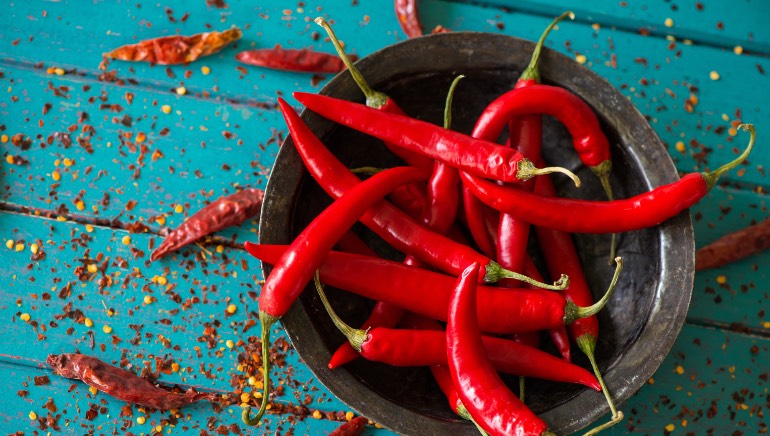
Breastfeeding can come with its set of apprehensions. In the midst of a volley of advice coming from grandmoms, moms, neighbourhood aunts, sisters, friends and doctors, a new mother may be left scratching her head over what to really do. A woman’s diet post-pregnancy especially garners a lot of interest. When we talk about foods to avoid during breastfeeding, there are certain foods or drinks which could cause a baby to become irritable or have an allergic reaction.
If you notice that something in your diet might be affecting your baby, avoid the food or drink for a week and see the baby’s response. Your diet during breastfeeding plays an important role in making sure you and your child are healthy.
Mercy Nixon, Lactation consultant, Cloudnine Group of Hospitals, Chennai, T Nagar, sheds some light on the subject for Health Shots.
Mercury levels in fish and shellfish make seafood tricky for consumption for a nursing mother. As a metal, mercury can be harmful for babies, who are more susceptible to mercury poisoning than adults.
Frequent exposure to high levels of mercury affects your baby’s central nervous system. This may lead to developmental delay. Avoid fish that is particularly high in mercury such as: tuna, shark, and sword fish, tile fish Shellfish is of two types: crustaceans such as shrimp, prawns, crab and lobster, as well as mollusks or bivalves which include oysters, mussels, octopus, scallops, snail and squid. It’s better to avoid shellfish.
However, breastfeeding mothers can note that fish is rich in omega-3, a much-needed nutrient. It would be safe to consume 2 servings of fish, that is low in mercury, per week.

Alcohol must be avoided while breastfeeding. It’s best for your baby if you avoid it completely. Excessive alcohol consumption during breastfeeding can cause issues such as delay in psychomotor skills, sleeping patterns and also cognitive delays as the child grows up.
Coffee and chocolate contain caffeine, which is a part of the foods to avoid while breastfeeding because the caffeine in them can seep into breast milk. It can end up cause caffeine accumulation in your baby’s system, causing issues such as irritability and disturbed sleeping patterns.
If you can’t do without these two foods, then limit their consumption. Take not more than 2-3 cups of brewed coffee. Having one or two piece of chocolate won’t do much harm but don’t go snacking on a whole bar.
There’s not much evidence to avoid spicy foods while breastfeeding. Also, most babies can handle when mother eats such foods. If your baby is colicky or has bouts of diarrhea every time you crank the spiciness up a little.
Select Topics of your interest and let us customize your feed.
PERSONALISE NOWIf you suspect it’s the spicy food affecting your baby, then cut it out for a few weeks to see if there’s any improvement.

5. Gassy foods
Foods that cause gas, such as asparagus, lentils, beans, cabbage, broccoli and cauliflower, are also foods to avoid while breastfeeding. These include If you’re baby has colic and is gassy, then avoid these foods for a period of time such as a couple of weeks and see whether they are improving.
Tea contains caffeine that is not good for a baby’s digestive system, but it also makes it harder for the mother’s body to absorb iron. Iron is needed to replace lost iron during postpartum bleeding and it’s a nutrient that is needed to keep energy levels up.
Either limit of consumption or try not to drink tea with a meal containing iron-rich foods like meat, leafy greens and fortified cereals.
Too much of the herbs like peppermint and parsley can curb breast milk production, if you see a dip in secretion you would prefer stop these.
Sage is another herb for breastfeeding that may be sprinkled in food for flavour.
Sugary drinks are also including in this list of foods to avoid breastfeeding. Sodas, packaged fruit juices and flavoured waters should be avoided because many people usually drink them in place of water.
Breastfeeding can make you really thirsty. Go for water instead of consuming soda or aerated drinks. Sugary drinks will add to your thirst.

Cow’s milk may not cause trouble for most breastfeeding mothers; it is likely that your baby may be allergic to cow’s milk protein.
If your pediatrician suspects your baby is allergic to milk, then it’s recommended to avoid consuming cow’s milk in your diet while breastfeeding.
There’s not much evidence that you should avoid nuts while breastfeeding but anecdotal evidence shows that some babies may be allergic to them.
If your baby is reacting to something you ate, with an itchy rash or hives on the chest or cheeks, you may want to stay away from common allergens such as nuts.
Removing peanuts from your diet, especially, might make your baby less likely to suffer from eczema.